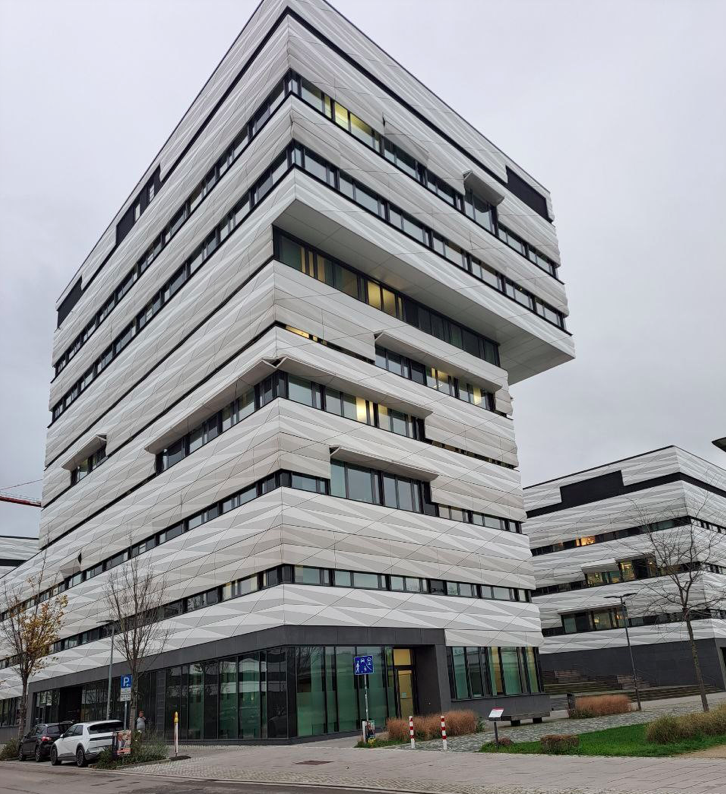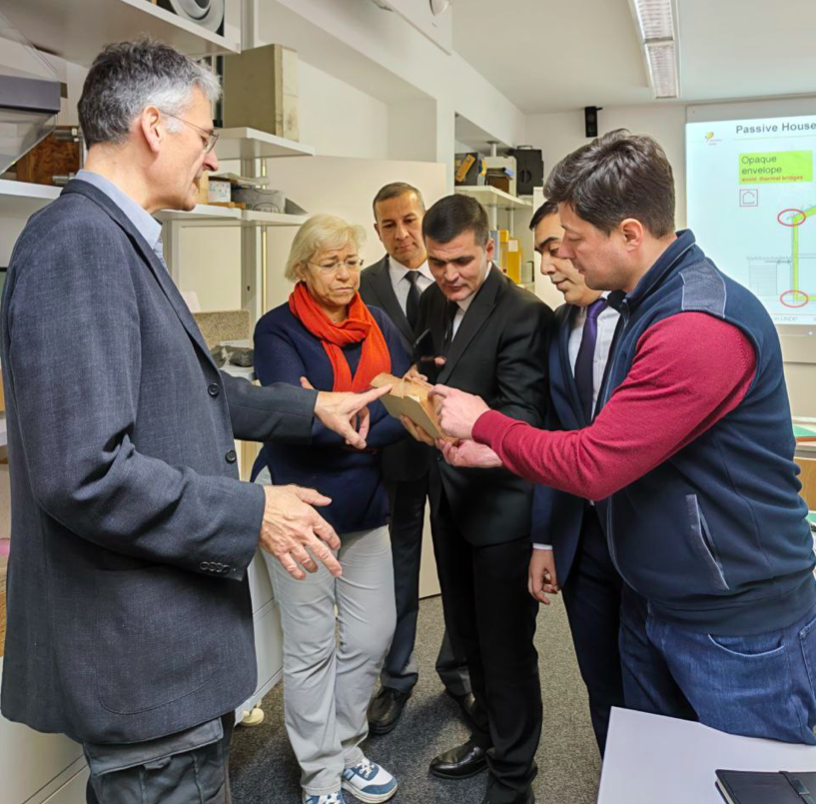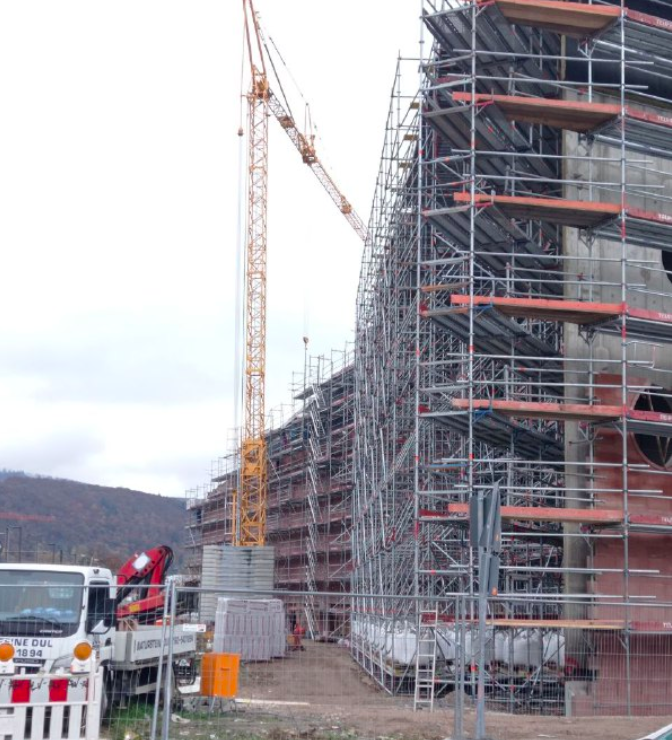Study tour to the Passive House – Darmstadt, Germany
December 23, 2022

Today, globally the building sector (use of electricity and heat energy for lighting, heating, and hot and cold-water supply) accounts for almost 40% of the total emissions of greenhouse gases in the environment. According to the first biennial update report under UNFCCC, the building and residential sector’s contribution to the total GHG emissions of Uzbekistan accounted for about 22.3 % and 21%, respectively.
Therefore, Uzbekistan pursues a targeted policy aimed at mitigating climate change, and a decisive role in this play an energy-efficiency policy in key sectors of the economy, including in building and residential sectors. Thus "Reducing the energy intensity of GDP by almost twofold through wide implementation of advanced energy-saving technologies" is one of Uzbekistan's development targets for the period up to 2030.
It should be mentioned that UNDP Uzbekistan is actively providing technical assistance to the Government of Uzbekistan on development of policy actions on the greening of Uzbekistan’s economy sectors, including the building sector. According to the recently endorsed Presidential Decree № 439 on 2 December 2022, which adopts the Green Growth Strategic Framework (GGSF) for the period till 2030, emphasizes importance of building capacity of decision makers and specialists in the field of energy conservation and energy efficiency. Hence, UNDP Uzbekistan within the framework of project "Market Transformation for Sustainable Rural Housing in Uzbekistan" organized a study tour of the delegation of Uzbekistan representing the Ministry of Construction, Ministry of Energy, Ministry of Housing and Communal Services, Ministry of Finance, Ministry of Economic Development and Poverty Reduction, State Committee for Ecology and Environment Protection, Technical Design Review Agency, State Architectural and Construction Oversight and Inspection Agency, National Renewable Energy Research Institute to Passive House Institute in Darmstadt, Germany.

The study tour to the Passive House Institute allowed the delegation to get closer familiarization with the science–based approach and innovative projects of the Institute as the Passive House Institute assume one of the world's leading position with regard to research on and development of construction concepts, building components, planning tools and quality assurance with a specific focus on energy-efficient buildings
Four-day event served a platform to learn international best practices in construction and regulation of energy-efficient, low-carbon and nearly-zero energy houses with focus on passive house techniques.

As Jasur Baltaev, Deputy head of the "Technical standardization, introduction of new technologies", stated:
“The experience and expertise of Passive House Institute has a great potential for further scaling up in residential buildings, especially in rural areas of Uzbekistan. The government of the country provides for separate norms in order to radically increase the requirements for energy efficiency of newly built and reconstructed buildings. These norms regulate, along with the revision of urban planning norms and rules, the development of regulatory documents to determine the energy efficiency classes of buildings and structures.”

The UNDP project has been working on promotion of the Passive House concept in Uzbekistan. In particular, the building code for “Passive house and energy active window blocks” is being developed with support of the Ministry of Construction of Uzbekistan and international consultants. Moreover, the project constructed and showcased the first Nearly Zero Energy House in Uzbekistan which also uses passive house elements.
The project "Market Transformation for Sustainable Rural Housing in Uzbekistan" is being implemented by UNDP in cooperation with the Ministry of Construction of the Republic of Uzbekistan, and funded by the Global Ecological Fund (GEF).

 Locations
Locations